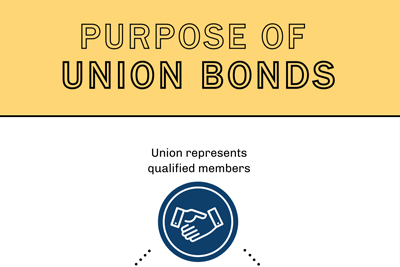Surety Claims: Impacts on Freight Brokers
Estimated Read Time: 4 minutes11-28-2023
In the realm of freight brokerage, compliance with the Federal Motor Carrier Safety Administration (FMCSA) rules is not just a compulsory obligation, but a carrier safeguard against potential freight broker financial failure. At the core of the safeguard is the BMC-84 Freight Broker Bond. This bond serves as a critical tool to protect carriers from non-payment, but when claims arise, the impacts are far-reaching for the broker.
The repercussions of a claim can extend beyond temporary financial strains that a freight broker may face. If claims come from a broker’s cash flow getting tight, that alone may be understandable to a surety. But the risk of claim from complete financial failure or fraudulent activity, including double brokering, and related signs to such incidents cannot be ignored. Bond claims are hints of such risks and the necessary surety reactions can affect the broker’s reputation, future bonding prospects and ability to be licensed.
Let’s break down three ways bond claim activity will affect a broker.
1. Reaction From Current Surety Provider:
When a claim comes in on a bonded principal, surety providers can do one of two things to affect rates or licensing.
First, frequent claim activity can impact surety rates. Surety companies may charge a higher rate for a bond upon renewal if there is claim activity. Sureties will do so to cover the known risk of costs of handling claims and the potential additional risk of financial failure. An example adjacent to this is when an auto insurance company raises rates on an individual who is in frequent accidents or is busted for speeding one too many times. These instances in the eyes (and the actuarial reports) of the insurance company deem it necessary to charge a higher rate to the insured. Surety is no different.
Second, and more damaging, is the cancellation of the bond. If a broker racks up too many claims a surety can non-renew the bond or cancel immediately. A non-responsive freight broker will definitely have their bond cancelled immediately. In either case, the surety has deemed the future risk of the broker too great to continue to bond.
When a notice of cancellation is put in, the freight broker has 30 days to either reinstate the bond with their surety company or replace the bond with another company. A related example of this would be if a driver is convicted of a DUI, some states allow insurance companies to cancel the policy of their principal because their risk to the insurance company has skyrocketed. Similar to a DUI, bond cancellation is seen on a principal’s record.
This notice is something freight brokers do not want on their FMCSA Licensing and Insurance page.
2. Reaction From Other Surety Providers:
Surety providers take into consideration a broker’s claims history when determining the eligibility and rate of the bond. Insurance history can be a clear indicator if there have been past claims against a surety bond. One of the biggest red flags a surety provider sees is a mid-term cancellation. A mid-term cancellation is when a surety cancels a broker's bond in the middle of the term. These are typically due to claims against the bond wherein the carrier was reimbursed and ultimately the surety.
It can be difficult to provide sufficient evidence for legitimate reasons behind a mid-term cancellation on a prior bond. The ability to get a surety offer may hinge on that criteria.
Whether deemed valid by the surety provider, a claim submission can tarnish a broker’s reputation with other concerned parties. Potential carriers and shipping partners can review a broker’s insurance history and use that information to determine if they want to enter into a contract with them. A damaged reputation can lead to reduced revenue and fewer carrier partnerships.
3. Brokers’ Time and Reputation
When a claim comes in against a broker’s bond, a lot of effort goes into the processing and defense. Locating old documentation, showing remittance of payments made, or even issuing late payments takes up valuable time.
If a freight broker has claims piling up, shippers will eventually catch wind of this activity. When they hear about a broker having claims on their bond, they are less likely to use them in the future.
The carrier that submitted the claim will naturally stop picking up loads for that broker due to the previous experience. They could also complain to other carriers using online forums, sites reporting brokers or just by word of mouth. The damage done to a broker’s reputation due to bond cancellation stemming from multiple claims can derail their business.
Strict compliance with Federal Motor Carrier Safety Administration (FMCSA) regulations, particularly the BMC-84 bond requirement, is not just a regulatory necessity but a safeguard for carriers and shippers against the financial failure of the freight broker. Partnering with a reliable surety provider, like Jet Insurance Company with a dedicated team to freight brokerages, can significantly alleviate these challenges through a streamlined investigation process, avoid unnecessary bond cancellations and minimize the impact on a broker's reputation. The typical surety company has a generic surety customer service and claims adjusting team. When Jet is notified of a claim, the investigation begins immediately. This ensures our bonded customers stay apprised of carrier claims and from that point on freight brokers get the best legal defense on claims available. Jet knows the law surrounding freight brokers and puts it to the defense against frivolous and even criminal claims against freight brokers so the damages explained above do not fall upon our customers.

